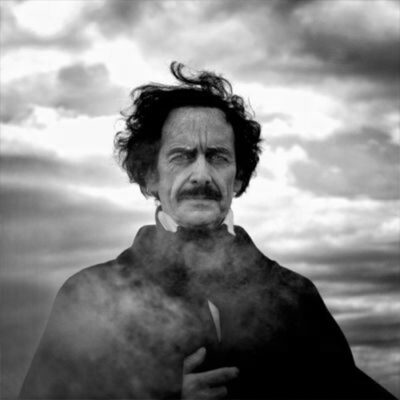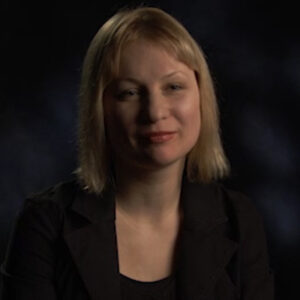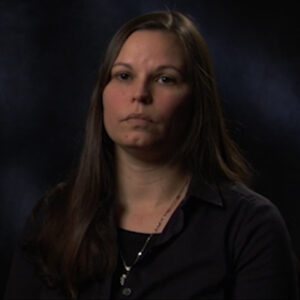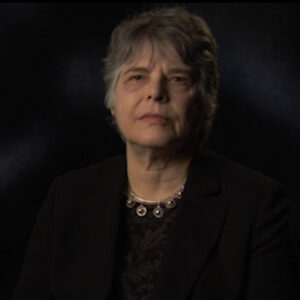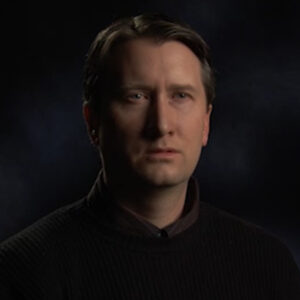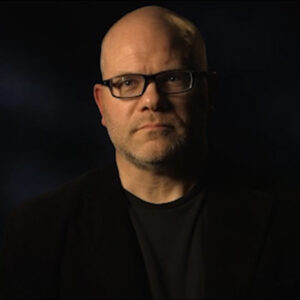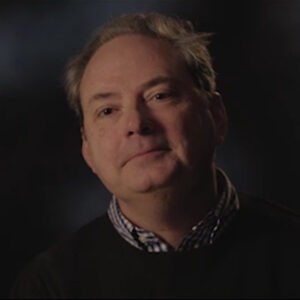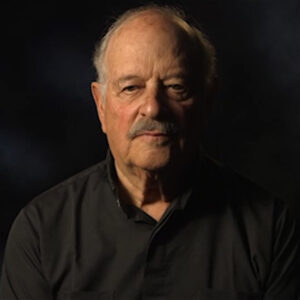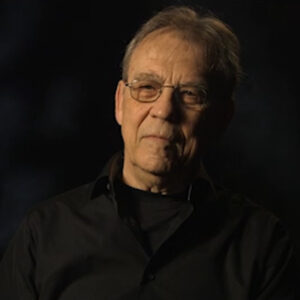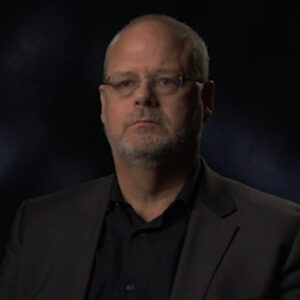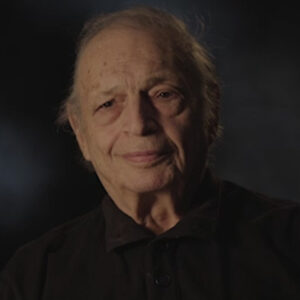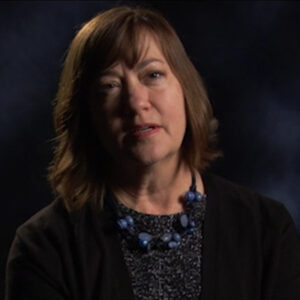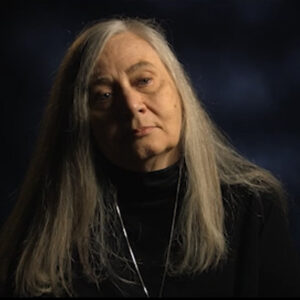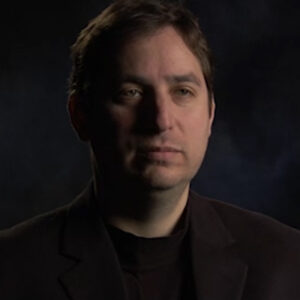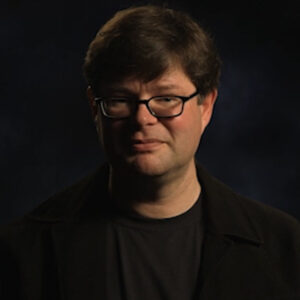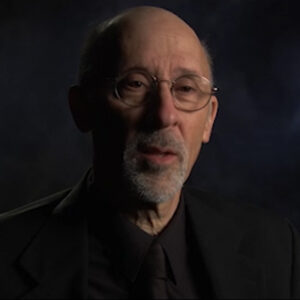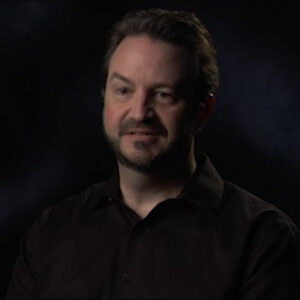Speaker So how first explain why you share the surname Edgar Allan Poe was my great great grandfather’s cousin, William Poe lived in Augusta, Georgia, and he was orphaned about the same time that Edgar was orphaned. So they grew up not knowing each other, but knowing of one another. They began corresponding the year that Poe moved back to Richmond to edit the Southern Literary Messenger. And a number of those letters, which are now in museums and libraries, give us a lot of the background information about Poe and his family Christine.
Speaker We’re starting our film is going to start, as you know, from the script with Poe arriving in Baltimore, his final visit late September of 1849. So when you imagine him getting off the steamer, walking up the dock, who was he at that time? How did he feel? What where was he at in his life?
Speaker What where was he at in terms of popular reputation when Poe left Richmond in 1849 to go north to bring his mother in law back to Richmond for his wedding? He was at the top of his career. He had already established himself as a major editor. He’d been successful in managing Graham’s magazine. He was now famous in the sense that Elvis and the Beatles and the Rolling Stones were famous because of the Raven, the Raven made him a household name when poetry was the great popular art form. The Raven had been republished time and time again in these days before copyrights in newspapers and magazines all over the country. It was a poem about the common plight of people where half of our children died before they reached maturity, where everyone died at home and everyone understood what it means to grieve. So he was famous. He was making money off of his lecture tours. He had found financial backing to establish his magazine, which was his great dream. He was about to marry his childhood sweetheart and he died.
Speaker And he was he was famous and of that, but he was still laboring under under the weight of debt, under the weight of grief over his first wife’s death. And so you can talk a little more about his maybe what his moods might have been.
Speaker As Po’s grief over the death of his wife, Virginia, really began in 1842 when she was diagnosed as having what we now call tuberculosis. It took her five years to die. She died a little bit every day, but then she would get a little stronger and then weaker and then stronger. But he knew where it was going. Tuberculosis was a death sentence then, and the raven is a poem of anticipatory grief. She finally died in January of 1847. Poe went into a terrible, terrible depression. It’s the he follows the classic cycle of grief. And that first year was terrible for him. He published very little in 1847. He was able to do very little. He focused his attention on writing Eureka, his almost 150 page work on cosmology.
Speaker In 1848, when he published Eureka and began giving public lectures again, began traveling again, began socializing again. He had several quick crushes, romances. He got engaged. He became engaged. He got infatuated. He became an infatuated. And then he went back to Richmond, still grieving Virginia. But then looking forward and in in Richmond, his childhood sweetheart was now a widow. He and she caught it. They fell in love again. They became engaged and he was moving out of his time of grief into sort of a re-establishment of himself. So from a period of pretty significant swings, anyone who’s grieved over the death of a spouse or a child knows exactly what this is like. You have bad days and worse days, but then it begins to move into a period of normalcy. And Pough was beginning to move into normalcy in the summer of 1849 into October when he died.
Speaker Can you talk about his his drinking issues then and the vow that he made and whether you thought he was going to be able to live like that or not?
Speaker Yes, alcoholism has run in the family for 250 years that we can document. My great great grandfather, William wrote to Edgar talking about the family curse. It continues down to my present generation. I decided not to drink when I was a young man and have avoided it the way I like chocolate and potato chips. If I drank, I would be a hopeless alcoholic. I’m sure of that. And the problem wasn’t simply that he was alcoholic. He also had an intolerance of alcohol. So we would say an allergy. It made him deathly ill and he he couldn’t drink. And yet raised in Richmond, where in polite society you are expected to drink, especially at a dinner when the toast is made to the hostess and everyone is expected to take the toast and so often pose bouts of drunkenness were very public because it would be in that kind of occasion. And once you’re once you know, you’re Daman you are susceptible to it. And he was always susceptible to peer pressure in terms of the so-called friends saying, oh, come on, you can take just one. And so it was it was really quite sad for him. And he tried a number of times to avoid it. He could go long periods of time without drinking. But once he was in a situation where alcohol was present, it was it was deadly for him. And at the end of the summer of 1849, he he learned just how weak the human will is. And he went forward. And a Sons of Temperance revival meeting, it was reported all over the United States. But the difference is it wasn’t simply a, oh, I will stop drinking. This was the this was really the beginning, the forerunner of Alcoholics Anonymous, which was the idea that you you needed the help of a higher power. And PO had just written Eureka, in which he had become convinced of the existence of such a power who created the universe. And so apparently it seems he was he was drawing on spiritual reserve rather than just physical resolve.
Speaker The.
Speaker I’m sort of skipping around the time zone and trying to maybe get it back in the chronology, but it doesn’t really matter. Yeah, I’m easy with the impact of his mother’s death of being an orphan in his father’s death, but how did that affect the young, young Edgar? When you think of the seven, eight, nine year old Edgar, what kind of boy would he have been in the Allens house?
Speaker OK, Poe’s parents were both dead by the time he was two years old. He was taken into the family of Francis and John Allen. He was, in that sense, the only child they had. They were a comfortable family, a family that became fabulously wealthy when Mr. Allen inherited one of the largest fortunes in the United States at that time. He was loved in a profound way. He grew up knowing what love was. Mrs. Allen and her sister and the rest of the extended family made him safe, secure, comfortable. He received a an outstanding education for that day in the United States. They traveled to England for five years when he was what we would call elementary school from 1815 to 1820 had enormous advantages. And so in childhood, he knew comfort, security, love, affection. And it wasn’t really until his late teen years that all of that began to collapse. The woman who was his ideal at that time of beauty, the woman start over with the woman. The woman who was his ideal of beauty, was the mother of his best friend, Bob Stanard. She is the one who encouraged him to write poetry. He thought he might be a musician. He thought he might be a painter. He was a gentleman. So he didn’t have to earn his living. He would inherit wealth, but she encouraged him to devote himself to poetry. And the poem to Helen is named in honor of her and is about her. Unfortunately, mental illness took her. She became suddenly mad. We don’t know the origins of it. Probably it was a medical condition. And then she died. And so this was his first great experience with death and tragedy, because it is the death of a beautiful woman and it affected him profoundly. How unfair. How unfair.
Speaker And can you talk about that young teenage Edgar having read Byron, having now suffered this this loss, going to Shockoe Cemetery to see her gravesite?
Speaker Just describe that scene and what Shopko cemetery was like and OK, I’m going to let you talk to Chris about that, because I don’t know the Shockoe as well as he does. But I can I can talk about the rest of the general idea. Yeah, I was a teenage boy would be like most teenage boys. He started writing poetry for the little girls in the community to impress them and to stimulate love, interest in romance and flirting and that sort of thing.
Speaker But then he fell deeply in love with Elmira Shelton and she fell in love with him so late teenage, we would say, high school years. And they were going to be married as soon as they could. Well, about the same time Pough discovered that Mr. Allen had been having a string of affairs in Richmond, which didn’t matter so much when he was just Mr. Allen, who ran a business down in Shockoe Bottom. But when he inherited an estate of some seven hundred fifty thousand dollars, which made him one of the wealthiest men in Virginia when Virginia was the wealthiest state in the Union, then all of a sudden he had a reputation to protect and all eyes were on him. And so he was afraid that Poe was going to tell his secret. Well, the last thing he wanted was the secret to get out because I was concerned about Mrs. Allen and he confronted Allen about it. Allen’s tack was to discredit Poe, and he began talking about what a liar Poe is, how ungrateful that sort of thing, and then sent him off to the University of Virginia. Unfortunately, he did not pay Poe’s fees. He made a partial payment, did not provide him with money to buy books and equipment so that he could actually pursue his studies. Out of those records are on display at the University of Virginia. The university is quite proud of Poe. And the rumor that that Allen spread was that Poe was expelled and it was his exorbitant debts that required him to leave the university. Well, the debt was Allen’s. He didn’t pay his fees. So we have these sorts of crises in the family that Poe decided to follow the model of Byron, the heroic poet who had gone off to Greece to fight in the Greek revolution against the Ottoman Empire. And so Poe joined the army and under an assumed name, Edgar Perry, and began to make his own way in life.
Speaker That’s great, thank you. It’s very nice, but his swim in the James. Did you just. Yes. US that story because don’t explain what a what a feat it was and then why you think he did it. What was he trying to prove?
Speaker How can we think of how often his frail character. But in fact, he was an athlete. It was before the days of baseball and football. Athletics in those days had to do with more the track and field sort of event. He was a fabulous swimmer and he became famous for swimming the James River against the tide for a great distance. I think it was six miles and it was a stellar feat. He was, in a sense, imitating Lord Byron, swimming the Hellespont. But what was he trying to prove, though? He was living in a community of gentlemen, it was known that Poe’s parents were actors. And in those days, to be an actor was to be a disreputable person, actress was equivalent in the minds of the average person to prostitute.
Speaker And so in many ways, Paul was always making a place for himself in society, and he was a great defender of the acting profession when he died, the actors of New York commissioned a huge marble monument to Poe, which was in New York City for many years and only a few years ago was loaned to the Poe Museum in Richmond, Virginia, as a monument and a tribute to Powell in going back to the swim again, just a little more.
Speaker Could you mention that he was 16 when? When he was 16. Oh, OK.
Speaker OK, and just a little more speculation, if you would, about who he was trying to impress and why he thought that might do it.
Speaker Oh, OK. OK.
Speaker When I was 16 in Richmond, he did the fabulous feat of swimming six miles against the tide on the James River, which in many ways imitated the feat of Lord Byron swimming the Hellespont.
Speaker Lord Byron would have been one of the heroes of of young men. He was both the the poet, the rock star of this day, but the heroic figure who went off to fight in the Greek war for independence, but who was clearly trying to impress his friends in school, probably the girls in town.
Speaker But Po had to fight several times during his high school years. He was a great wrestler and he was dogged in his determination.
Speaker He would not surrender, he would not give in. And at the point at which it looked like he had been defeated in a fight, suddenly there would be a surge of energy. And Poe wound up on top, pinning the the opponent. So much of this, I think, had to do with his own self-esteem and his sense of having a place in society, though he lived in a comfortable family, a reputable family, he was never adopted by the Allens. He was always a POW. And his parents had both been on the stage actors at a time when actors were considered disreputable. To be an actress was the equivalent of being a prostitute. And there was talk about the boy who, though very nice in many ways, was the son of actors.
Speaker Perfect. Thank you. That’s great. That’s really good.
Speaker And we’ve covered a lot.
Speaker Let’s talk about Eureka. You know, we can’t go into no, you know, take all day. Yeah, but maybe if you could talk about those hopes for it. I mean, there’s that famous meeting with George Putnam where he said, you’re going to want to print 50000. Yes. I said make it five. Yeah. You know, you could work that into the post. You know, this was a magnum opus. Yes. You know. Anyway, I can ask a question. Do you want to do.
Speaker Well, I’ll start start talking and see and probably break it up into clips so that you could kind of chronological, if you could on stage one.
Speaker Stage two.
Speaker Ever since his childhood, I was fascinated by science when they were in London, Mr Allen bought a huge brass telescope that remained on the Upper Pazz of their great home, Moldavia, with which Poe looked at the stars. He wrote poetry about the stars. He was fascinated by the heavens. When he was editor of Berton’s magazine, he wrote a monthly column on science as a book reviewer. He reviewed the major works on science, and when he was writing short stories, he would bring science into it such that he became one of the pioneers of a kind of fiction that was unknown in his day. With a few exceptions, Mary Shelley had written one of these we call them science fiction. They had no name at that time, and he was fascinated with what might be in eighteen forty four, I believe.
Speaker Start over again.
Speaker In 1844, he wrote a short story called A Succession of Sundays. Now it’s known as three Sundays in a week. But at the conclusion of that short story, he postulates that there is no privileged space or privileged time within the universe. That’s a kernel of an idea that he then developed in 1848 in his major treatise, Eureka. That idea of there being no privileged time or privileged space is what Albert Einstein would later call relativity. And within this treatise, Pough develops not only the basic concepts of relativity theory, but also the Big Bang Theory and the idea of nuclear attraction and repulsion, the basic nuclear forces. He expounds the idea of chaos theory. We sometimes call it the butterfly effect. He expounds on why the universe has so much empty space over such a vast amount of time and concludes that life really could not have developed otherwise. This is now known as the anthropic principle. And so he was thinking of all of the major areas of science together in a cohesive whole that interconnects. Today we call this the theory of everything. And Poe realised that it couldn’t be taken as science because he didn’t have the right observations. He did not have the vocabulary. He did not have the tools to explore these ideas. The atom, as we know it today, had not yet been understood. Madame Curie had not yet done her work, but through what he called a process of imagination and intuition, he grasped the whole of the universe and most of what we now understand the universe to be from its simplest complexity to largest complexity, Poe outlines in Eureka.
Speaker It’s incredible, isn’t it? What were his hopes for it? And yet, how was it received?
Speaker Poe considered Eureka to be his most important work. Now this is over and above the Raven, which he thought was dandy. But Eureka went beyond anything he had imagined. And he he he and he titled it. He had a double title. He called it a prose poem, but he also called it an essay on the universe. And which is it? It’s really both because Eurekas word, Greek word. That means I have discovered. And so the title Eureka, a prose poem, I have discovered a prose poem, Eureka, an essay. I have discovered an essay about the universe. And in the context of the story of the essay of the narrative, he says that the universe itself is a grand poem. The use of the universe itself is a huge plot. It is the plot of God. So excited by Eureka, he wanted his publisher to print 5000 copies. The publisher only printed 500, but he believed that Eureka would be the reason he would be remembered because of his reinvention of the universe in terms of what he believed he had discovered.
Speaker How is it regarded by scientists today when Eureka was published, it was considered the work of a madman. People felt that Poe had finally gone over the edge because he refuted the major ideas of science in 1848, astronomy still clung to Aristotle’s idea that the universe is infinite in size and eternal in duration. It’s always been here, always will be here to refute Aristotle was insanity. Poe also took exception with Newton’s understanding with gravity. Well, how could you disagree about Newton understanding of gravity? Only a madman would do that. Of course Einstein did it, but that was later. And area after area after area post disagreeing with the understood science, it was understood to be a work of of a deranged mind into the late 20th century in the United States, now in Europe. It was received differently. It was it was shattering to the Europeans. And it’s fascinating to me that most of the modern ideas of the universe, Einstein’s understanding of relativity, the matron’s understanding of the big bang, Niels Bohr’s understanding and Curis understanding of the atom, all came where Eureka was published multiple times. And even today, people have a hard time thinking of Poe, who was, after all, a French major understanding such complex ideas.
Speaker Great, thank you, sir. Good. And you’re the only person we’re asking about you. Oh, you know so much about it, you know, I feel like someone’s got to.
Speaker Yes. Yeah, we can address that.
Speaker And I think you’re really the perfect person to do it.
Speaker In your view, what’s what’s most most successful work? What’s most powerful and affecting work?
Speaker I think those most successful work in terms of what everyone knows is the raven in traveling around the world, when I pull out my credit card and the person at the gas station or the checkout counter sees the name PO, they will typically say, oh, like Edgar Allen. And then more remarkably, they will quote a few lines from the poem, either Once upon a Midnight Dreary or quote The Raven Nevermore. It’s is universally known work now in terms of Poe’s influence, his understanding of how poetry works and the very idea of creating an effect in the reader is one of his most influential ideas. But this is what the French immediately took up through Baudelaire’s lead. And in French, instead of fact, they took the word impression to create an impression in the audience. And so the French impressionist movement was inspired by Poe’s understanding of art. And the English speaking world probably posed greatest influences through his creation of the mystery story and his development of science fiction as a real kind of storytelling, and these two are two of our most popular kinds of storytelling to this day.
Speaker And. Speaking of that, so why is Poe so misunderstood?
Speaker I’m thinking of a remark you made to Charlie once that, you know, Edgar Allan Poe, the myth, and Edgar Allan Poe, the man met each other on the street.
Speaker They wouldn’t even recognize each other a great life.
Speaker So. So what’s going on? What happened to how did this myth develop and how was it so different from what do you want me to use that line again if you got it somewhere else?
Speaker Yeah, no. OK, also saying it’s OK if Edgar Allan Poe met Edgar Allan Poe, the myth on the street, they probably would not recognize one another. Poe was much like the fictional David Copperfield. He was a friendly so made friends easily. He was witty. He was charming at parties. He sang and played the flute. But when he died, he had the misfortune and the mistake of dying before his greatest literary enemy, Rufus Griswold and Griswold created the myth of Edgar Allan Poe that is so famous. Now, a number of things have contributed to the expansion of that myth. For instance, in the high school anthologies, normally students only read The Tell-Tale Heart. If they go beyond that, they will read a few other of the horror stories. But horror was Poe’s least favorite kind of story to tell. He didn’t like it. His most popular story, the kind he liked to tell, were comedies. A third of his 75 short stories are comedies. He liked a romantic comedy, but after that he wrote mystery stories and science fiction stories. The the horror story is way down the line, but the horror story was the one that was reprinted in the anthologies because those are his shortest short stories.
Speaker Interesting.
Speaker Yeah, I actually thought I mean, I think that is of course, those are the stories people read. Yeah, you don’t realize it’s all designed that way.
Speaker I’m going to record it while I want to. Yeah. Actually, this is sort of part of a bigger question. I wanted to ask you more about what Gryzlov did to. So if you could sort of put us right in there that day after polies died, describe the the Ludvig Elbit and what the impact was and how people would have felt about it.
Speaker I’m trying to pull all of this together succinctly, we can do it a couple of times now.
Speaker Let’s give it a shot.
Speaker Rufus Griswold was a highly successful editor of magazines and anthologies. He did very well at it. He was good at it. He published a volume on the poets and poetry of America, and Poe was included. He asked how to write a review of the book, which I thought, well, that’s a little offhand, me being in the book, but nonetheless, I’ll do it. And Poe had, as part of his project, raising the literary quality in America, which meant, you pointed out what needs to be done to make it work better. And he assumed everyone would want that information and would be grateful to him for telling people what’s wrong with their work. Well, he was a bit naive there in those days. Rufus Griswold said, you puff my work and puff yours. Pal pointed out what was good about Griswold’s anthology, but then he said what was bad about it. And Griswold took great exception to that, was highly offended and was an enemy of Poe for the rest of his life. When Poe died, Griswold wrote the obituary of Poe for Horace Greeley’s newspaper. In New York City, in it, he pilloried Pop, he took him apart and it was a back handed approach because he said, oh, Paul was a great genius. It’s a shame nobody liked him because he was such a vile character and went along in that vein. He then visited Poe’s mother in law, Mrs. Clinton, and told her that it was Poe’s greatest desire that he Griswold edit pose complete works if he should die. He asked her then to sign a release, which in fact gave Griswold the right to pose work. Mrs. Klamm did not get a penny. Griswold got all the money. But worse than that, Griswold then wrote an extended biography of Poe, which appeared in his four volume edition of Poe’s Works, in which he quoted extensively from non-existent letters to destroy Poe’s character.
Speaker He took out of Poe’s papers from Mrs. Klym, and he revised letters that Poe had written. Now, what Griswold did not foresee was that the time would come when Poe’s letters would become quite valuable, that people would pay hundreds of thousands of dollars for an Edgar Allan Poe letter. All of the letters being collected in multiple editions as new ones came to light and that. The definitive biography of Poe by Arthur Hobbs and Quinn, published at the beginning of World War Two, would do an analysis of the actual letters, as Poe wrote them, compared with what Griswold said that Poe had said in those letters.
Speaker And it became obvious that Griswold was a dreadful liar. But by then, the damage had been done. The mythology of Poe had been created, and you can’t change the mythology of great simplicity while working on the topic.
Speaker I mean, I could see that at the very end of our film trying to explain what happened. But but we’re also at the beginning of the film, we’re doing a little summation of things.
Speaker So if you could just say in one or two sentences that something along the lines of, you know, the the myth that we have about Poe today was the invention of one man, essentially the Reverend Rufus Griswold, who and he wasn’t, by the way, he was never he wasn’t nobody.
Speaker But that was another part of his his command. He represented himself. Right, as a clergyman. Well, if you could just that was never a very general sense of, you know.
Speaker Poe is one of the most well-known figures in popular culture today. He’s one of the most influential figures on the arts in culture today. And almost everything people know about Poe is wrong. The myth of Poe was created by one man in October of 1849 when Rufus Griswold wrote Poe’s obituary.
Speaker Perfect. That would be very helpful. Thank you. And the keratitis, if maybe you could just talk about the ultimate tool TSA, say, or to Fula through its flattener.
Speaker Great, great. Great.
Speaker Yeah, describe it. Well, I guess technically it would be fully.
Speaker Trying to remember what he rhymes with.
Speaker Yeah, I could look it up on my iPad. I have everything there. What is it?
Speaker Um, I’m pausing. OK, thanks. Let’s give the context. OK, portrait was made a couple of days after he had attempted suicide.
Speaker The morning after the morning. And what do you see? Yeah, he’s OK if we’re it together. What are we seeing there in that? OK, we’re going to be here.
Speaker OK, we have a number of images of DPO, several daguerreotypes, a painting, two watercolors in which Poe has a pleasant appearance. But there’s one which is probably the most famous in which he looks ghastly. This is known as the ultimate Fula Diggory, a type we have the expression of the morning after this daguerreotype was taken, the morning after Poe had apparently started over.
Speaker That is there. Oh, yeah, OK. Yeah, start from the beginning with this thick, airtight plastic.
Speaker OK, this daguerreotype was taken the morning after Poe had apparently attempted suicide. He had at least taken an overdose of of laudanum with which he was unfamiliar. He had no experience with drugs, but the result was he was in a ghastly state the morning he was having his portrait taken. And we also need to remember the way up to Guerrier type was taken. It was not flash photography. The person had to sit. Perfectly still, motionless, expressionless, and depending upon where the light hit the face, different effects were created. So with this photograph, this this daguerreotype, we have an image of how that connotes and evokes probably all of the darkest aspect of the mythology of Edgar Allan Poe.
Speaker Thanks. Next, let’s talk about the museum. OK, so now this you know, I know the goal is a five minute piece, so and we have Chris, I think being the main sort of scriber of the exhibits or whatever, but maybe you could just give two short statements, one imagining the beginning of the piece and one toward the end about what is the what is the mission of the museum?
Speaker The museum is more than a static collection of objects about a man who lived a long time ago.
Speaker That’s a nice thing to do, but the. Hope of the Poe Museum is to inspire a new generation of young people and to stimulate their imaginations to be those who will produce the great literature and art for the future.
Speaker That’s good. What do you hope a visitor, a typical visitor, will emerge from the museum feeling?
Speaker We hope that when people visit the museum, they’ll gain a let’s over. We hope that when people visit the museum, they’ll gain a greater appreciation for who pope was, but also the power of imagination to create not just works of art, but advances in science and business and medicine, because all of these things were concerns of Poe. But he gives us a model of how someone can step beyond what is already known towards that entrepreneurial spirit that achieved something great.
Speaker And one more, what is the power of these artifacts? I mean, they are just objects. They’re just desks or a chair or trying to remember what else is.
Speaker There have been some clothing. Why do they have power? Why do they have meaning?
Speaker The objects in the Poe Museum are varied, and can we have the little bed that he slept in as a child? We have the trunk in which he always carried his wife’s small mirror. We have his walking stick, his vest, a chair that he used as an ATM. One of the things these objects do is bring to us or bring us in to the world of Edgar Allan Poe, an appreciation for the distance of time and space it evokes for us the period in which he lived, the struggles he had, the things he overcame, and thus the challenges we in our own lives have. Poe was persistent, and if there’s an inspiration he can give to the average person, it is to persist and not accept life’s defeats.
Speaker Excellent. Thanks. I think that will be great and of course, it made me realize one more question. How are we doing time wise guys? And we generally on schedule say, OK, OK, I won’t take 15 minutes, I promise.
Speaker But I guess the question is, why should we care about polls today? Why does he still matter? And and in answering that, if you can maybe refer to the fact that somehow every new generation finds.
Speaker Yeah. And that’s actually the topic for Jerry Kennedy’s lecture tomorrow night.
Speaker OK.
Speaker One of the remarkable things about PO is that his works have never gone out of print. Poe has never ceased to intrigue the popular audience. He’s been out of favor and far out of favor with different academic communities who sometimes struggle to understand why does Poe continue to fascinate? When Poe went against what were the fashionable literary theories from time to time while Whitman disregarded Poe until late in life when he thought, oh, my goodness, I’m actually standing on Poe shoulders. The same with T.S. Eliot. To the credit of both of them, they did recognize their dependence upon power. And so there’s a sense in which Poe has continued to inspire generation after generation of writers and artists who often don’t even realize their debt. In 2009, the Mystery Writers of America recognized the two 100th anniversary of the birth of Poe and in the program booklet for their annual Edgar Allan Poe banquet when they honor the great mystery writers of America. Today, one of the mystery writers who wrote a piece for it observed that she had not even realized her depth to Poe and discovered that over and over again in her mystery stories, she was using devices that Poe had created. And so this is one of the remarkable pieces some of the great artists of the past disappear. But Poe has persisted.
Speaker You mention of Walt Whitman saying, we think that that was good and we think that we do need also a description of the event when Poe’s body was moved, when the casket was moved.
Speaker If you could just give a brief, OK, you remember that I can probably someone from Baltimore needs to do that when you do the. OK, but I’ll give you.
Speaker All right. Just, you know. Yeah. What so, you know, just a brief description of, you know, maybe you could allude to the fact Whale’s funeral had only five mourners.
Speaker Things were very different almost twenty five years later when he said, OK, and I’ll take it from his his interment to his centennial. OK. And do it fairly quickly. OK.
Speaker When Poe died in October of 1849, he was not even in the city where he made his home, the city of his family. He had relatives there and the funeral was very small, just a few members of the family, Collins Lay, with whom he attended the University of Virginia, and that was about it. A small grave in the family plot, no distinguished marker in eighteen city. Seventy five started in 1875. The ladies of Baltimore determined that Poe needed a proper and fitting monument. The money was raised. There was a major ceremony. It was covered in newspapers all over the country. And at this point there was a huge, huge turnout. Poe was known. Poe was somebody. Poe was a matter of pride for Baltimore, and Walt Whitman was one of those who attended and was part of the ceremony. That was recognition from all over the world about this event. But if we move forward to 1999, the centennial of his birth, there were observations all over the world.
Speaker In London, Sir Arthur Conan Doyle, the inventor of Sherlock Holmes, hosted a banquet to honor Poe in which he spoke of the deep debt that all mystery writers have to pay for their fortune and their success. And there’s a tradition that’s grown up among mystery writers that began with with Doyle in Doyle’s first Sherlock Holmes mystery. A study in Scarlet Sherlock Holmes comments on the work of Edgar Allan Poe’s detective, Auguste Dupin. And since then, almost every major mystery writer has included some tribute to Poe and one of the mystery stories in one way or another.

